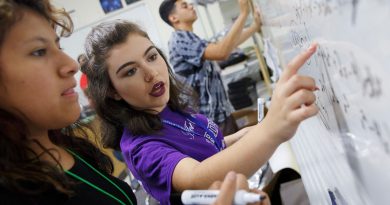How Teacher-Prep Programs Should Help Future Educators Adapt to Crisis and Change
During the early days of the COVID-19 pandemic, a 3rd grade teacher was desperate to have a face-to-face meeting with her students. But some parents said 9 a.m. was too early; some said 10 a.m. was too late; some weren’t available at all to help their child during the school day; and some said anytime would work, but then didn’t show up because of something unexpected.
Figuring out how to schedule learning time amid the chaos of a still-emerging deadly virus was just one of the myriad challenges teachers faced when COVID shut down school buildings nationwide in spring 2020.
In essence, teachers became supply-chain distributors, technical assistants, social services facilitators, guidance counselors, and emotional support providers for students and families, according to a paper by Jenny Gawronski, an associate professor at the Rocky Mountain College of Art, that was published last August in the Journal of Digital Learning in Teacher Education.
Gawronski surveyed 28 elementary English teachers and three dual-language teachers from 15 schools, including 11 Title I schools, in the Pacific Northwest about their experiences ramping up online instruction, in most cases for the first time and without much prior training. All of the interviewees were mentor teachers in the teacher education program where Gawronski worked.
“If we as teacher educators can better understand their thinking and how they were operating during those first few months, we can help prepare future teachers to adapt to changing conditions that are happening now and into the future,” Gawronski said June 29 during a virtual panel that was part of the annual International Society for Technology in Education conference. She was presented with the outstanding research paper prize from the Journal of Digital Learning in Teacher Education.
Here’s how Gawronski recommends teacher education programs adapt.
Practice what you preach. If teachers are expected to be flexible and quick on their feet, people involved in teacher training should demonstrate similar skills. If teachers need to learn certain technology tools or programs, colleges should incorporate those programs into their own courses.
Use what you know. Current pre-service teachers likely had online learning experiences that were at least somewhat comparable to what K-12 students dealt with in 2020. Reflecting on those experiences can help emerging teachers recognize some of the pitfalls of remote learning so they can design their own tech-enabled learning experiences in ways that serve students.
Don’t assume the status quo will return. More than two years after the pandemic began, it’s still upending classroom instruction and posing new headaches for educators. And it’s impossible to know the other disruptions that will inevitably emerge in the coming years. “What can we learn from that?” Gawronski said. “How can we imagine and rethink our classrooms for the future?”
Examine mentor-mentee relationships. Gawronski plans to center future research on the experiences of pre-service or intern teachers and their interactions with mentor teachers during the disruptions wrought by COVID-19. How did they use technology to communicate? What atypical classroom roles did they fill when the normal classroom experience wasn’t possible? These insights will help shape instruction for the next generation of teachers and beyond.
Source: https://www.edweek.org/teaching-learning/how-teacher-prep-programs-should-help-future-educators-adapt-to-crisis-and-change/2022/06




